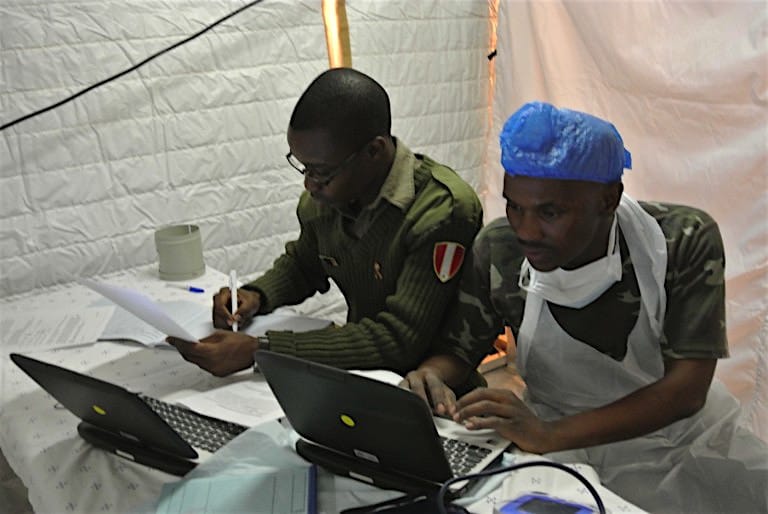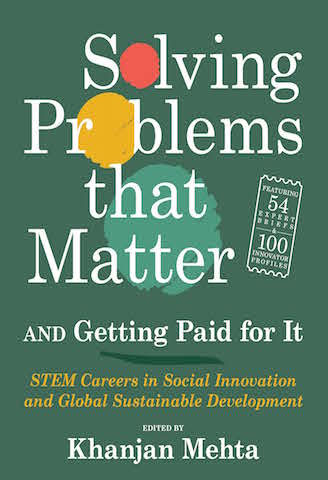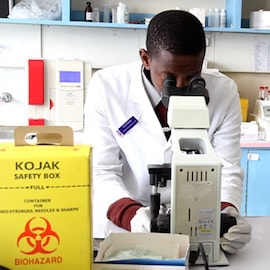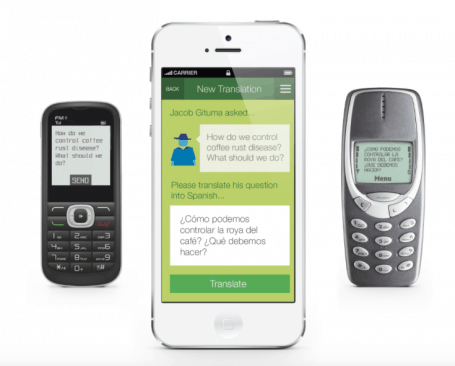Upending Conventional Wisdom with Bottom-Up Innovation
How Microsoft’s Affordable Access Initiative is Supporting Local Entrepreneurs Bridging the Digital Divide
I’ve spent most of my tenure at Microsoft shuttling between two worlds: the world of digital “haves” and digital “have-nots.” Digital haves live in places like Redmond, Washington, where Microsoft is headquartered. Here, technologies and services built on reliable internet connectivity enable us to instantly obtain even the most esoteric information, translate languages, and remain connected, productive, and entertained any time of day. This is in stark contrast to the 4.2 billion have-nots, who live primarily in emerging markets, but also in economically disadvantaged and rural parts of developed countries, including the U.S. There, affordable and robust internet access remains beyond reach – along with the opportunities that come with it. Unless we embrace a holistic approach to close the digital divide, 60 percent of the globe will be at risk of falling further behind, especially since the Redmonds of the world are currently in the midst of a fourth industrial revolution, characterized by even greater connectedness. To accelerate the democratization of affordable and robust internet access, Microsoft announced 12 new partnerships with social enterprises. Through our Affordable Access Initiative, we will support their market-based innovation through seed grants, a network of peers, mentors and resources, and commercial partnerships, in addition to engaging the communities in which they work.
No such thing as a one-size-fits-all solution
In my numerous visits to under-served communities around the world, I have met many inspirational people. While demand for internet access is nearly universal, one thing I’ve learned is that there is no one-size-fits-all approach to delivering online services and applications. Fishermen living on remote Philippine islands don’t have the same needs as university students in the coal towns of West Virginia or school kids in off-grid Indian villages. Local entrepreneurs stand a better chance of understanding local needs, and have the expertise to create new technologies and business models to meet those needs, taking into account local market conditions. That’s why our Affordable Access Initiative is providing grants and support to social enterprises working on promising connectivity solutions in 11 countries. This builds upon Affordable Access projects Microsoft partners already have underway in almost two dozen countries.
One grant recipient is VistaBotswana, which uses a cloud-based medical records management system. This can replace cumbersome paper-based systems and give healthcare workers a comprehensive view of the patient’s health. The result is that healthcare workers have the information needed to provide better counseling, education, and treatment of conditions including HIV/AIDS, tuberculosis, and malaria. Its software is called Vista Electronic Medical Pathways and it is ideal for use in remote locations since it is designed for low-bandwidth scenarios with unreliable power supply, and only needs to sync to the cloud intermittently. Our grant will help VistaBotswana further refine its software, which has already shown positive results in 10 countries across sub-Saharan Africa, the Caribbean, and South America.
Of course, affordable access is not just about the availability of low-cost internet access, electrical power, devices, and applications. Our partners are also ensuring that payment mechanisms and consumption models are relevant to local market conditions.

VistaBotswana uses Vista Medical Electronic Pathways, a cloud-based medical records management system, to track and improve patient care. This technology is optimized for use in remote areas with unreliable electricity and internet access. Photo courtesy of VistaBotswana.
A broad spectrum of possibilities
Forming strategic, high-impact partnerships includes working across sectors. For example, some of our Affordable Access Initiative partners are delivering applications and services over broadband networks leveraging TV White Spaces, which are unassigned or otherwise unused UHF and VHF frequencies. These frequencies can be re-purposed for wireless broadband networks. Access to these frequencies is happening with the cooperation and support of national spectrum regulators.
The result is that people around the world – perhaps even your neighbors – see real impact. According to the U.S. Federal Communications Commission, there are about 64.5 million Americans without broadband internet access at home. One of our partners, Axiom Technologies, has created a wireless network that relies on frequencies including TV White Spaces. Axiom will use its grant to provide low-cost internet access, along with IT training, to under-served families – many with kids struggling to do homework without internet – and small businesses in rural Washington County, Maine.

Zaya Learning Labs’ “ClassCloud” hardware delivers high-quality education content via the cloud to students like Pooja, Ashwini, and Bindu (pictured left to right) in low-income government schools like this one in Mumbai, India. The technology also collects data on student performance, helping teachers personalize lesson plans based on student needs. Photo courtesy of Zaya Learning Labs
Why invest more than just money?
Our goal is to support at least 20 projects in at least 15 countries by 2017. Beyond the numbers, we are looking for low-cost, practical, high-impact, and scalable approaches. It will take more than just grant money to refine and scale these businesses. It will take everyone working together and tapping into collective insights. This is why we are also setting up a network of peers and mentors for our grantees, hosting monthly touchpoints and a yearly partner summit, with the help of an organization called Village Capital, with whom regular NextBillion readers are familiar. And, beyond Affordable Access Initiative grants, Microsoft Philanthropies offers digital literacy, online safety, and computer science education programs through its YouthSpark initiative, as well as cloud product donations and training for nonprofits in communities around the world.
By empowering local entrepreneurs with funding and access to peer resources, we create a snowball effect of impact. Well-informed and well-resourced entrepreneurs with a good support network stand a better chance at success. And their success helps uplift local economies. Not only are they delivering services and products that help locals earn better livelihoods and improve quality of life, but all of the Affordable Access Initiative grantees are small and growing businesses, which research shows help create local jobs as they develop and expand.
Looking forward
Under-served communities face many connectivity challenges, but thankfully we don’t have to solve them alone. Local entrepreneurs are already developing promising solutions. Microsoft and other businesses can play a role in amplifying and accelerating impact by making strategic grants, fostering sustainable commercial partnerships, and engaging local communities. We look forward to learning with our partners as the first phase of our work unfolds over the next two years. Please visit the Affordable Access Initiative online to learn more.
Paul Garnett is Director of Affordable Access Initiatives at Microsoft.
Top image: New Sun Road, a Microsoft Affordable Access Initiative partner, manufactures SolTrees, one component of a solar micro-grid power system that delivers reliable, affordable electricity and internet services to communities in Uganda. SolTrees also double as streetlights for nighttime safety in the community. Photo courtesy of New Sun Road
- Categories
- Social Enterprise, Technology



